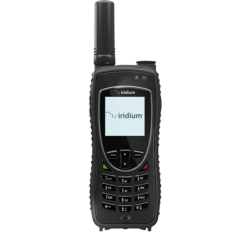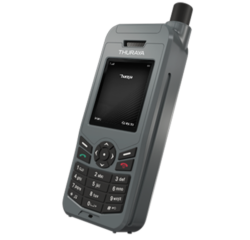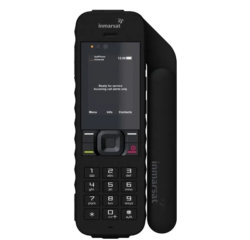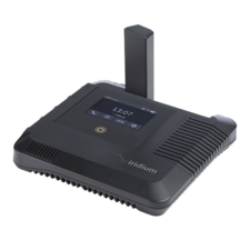Best Satellite Phones Today
With societies becoming increasingly interconnected, communication holds a vital role in influencing how we interact with one another. Satellite phones have been pivotal in revolutionizing communications by providing robust signals even where traditional cell phone towers fall short — particularly within remote areas where connectivity can be challenging.
They leverage geostationary satellites orbiting above the Earth’s atmosphere. They are accessible at any time globally with minimal interference issues and stable high-quality bandwidths that facilitate constant availability, making them perfect for people living off the grid.
- Our choice for the #1 Best Overall Satellite Phone Today is Iridium 9575 Extreme.
- Satellite phones provide a wide coverage area as opposed to cellular phones.
- Most satellite phones are easy to use and have a long battery life that’s sufficient for outdoor activities, like hiking.
- When you’re shopping for the best satellite phone, consider factors like network coverage, intended usage, battery life, budget, and durability.
History-Computer’s
Top Picks for the Best Satellite Phones

Call for pricing and packages
#1 Best Overall Satellite Phone: Iridium 9575 Extreme
- Military-grade durability
- Up to 4 hours of talk time
- Illuminated weather-resistant keypad
- Two-way SMS and short email capability
The Iridium 9575 Extreme undoubtedly stands out as the #1 best overall satellite phone currently available on the market. It caters perfectly to adventure enthusiasts, such as military personnel and emergency responders, who require a durable device capable of keeping up with their demanding needs.
This phenomenal phone meets MIL-STD 810F requirements, ensuring resistance to vibrations, shocks, and extreme temperatures. It boasts an unparalleled Ingress Protection rating by achieving IP65 certification standards that set new benchmarks for water-resistant functionality.
Its battery life is exceptionally long, lasting up to thirty hours on standby mode with four hours of talk time — making it an ideal companion on extended journeys. Its illuminated weather-resistant keypad enables global connectivity in low light or unfavorable weather conditions.
The device can also perform in the most severe environmental conditions because of its impressive operating temperature range.
PROS
- It caters perfectly to those who require a durable device capable of keeping up with their demanding needs.
- It is equipped with an SOS button, a crucial feature that can be activated in emergency situations to quickly alert rescue teams and signal for immediate assistance.
CONS
- Battery life is limited compared to other phones.
Best Budget Satellite Phone: Thuraya XT-LITE
- Up to 6 hours of talk time
- 2G cellular technology
- USB connectivity
Looking for secure and uninterrupted connectivity at an affordable price point? The Thuraya XT LITE delivers it all. This device was created with cost-conscious users in mind. It puts their requirements front and center, as it’s designed specifically for continuous communication capabilities without compromising security standards.
Its unique dual GSM/ satellite phone capability stands out among other options as it enables users to have access to both cellular and satellite communication.
No matter where you find yourself, from bustling cities to distant remote locations, the Thuraya XT LITE has got you covered on the communication front. It comes with 80 hours of standby battery life and six hours of talk time, ensuring minimal power interruptions.
PROS
- Affordable pricing makes this product accessible to a wider range of customers.
- The long battery life of this device ensures extended usage and uninterrupted connectivity.
CONS
- Limited network coverage in certain regions or remote areas.
Best for Long Battery Life: Inmarsat IsatPhone Pro 2
- Up to 8 hours of talk time
- USB connectivity
- LCD Gorilla Glass Display
If you require reliable communication options no matter where you are in the world, look no further than the Inmarsat IsatPhone 2 satellite phone. This device has been engineered meticulously to provide unbeatable battery life, ensuring steadfast connectivity whenever needed most.
By purchasing an IsatPhone 2 package you will receive everything essential for immediate communication: not just the device itself, but also necessary accessories and a SIM card awaiting activation from your preferred service provider.
Furthermore, buying this satellite phone provides access to valuable accessories, such as a lithium-ion battery, DC charger, hands-free earpiece USB cable, plus a quick start guide all packaged along with a SIM card from your vendor.
PROS
- It is incredibly easy to set up and use, making it accessible even for those with limited technical knowledge or experience.
- Provides unbeatable battery life ensuring steadfast connectivity whenever needed most.
CONS
- Relatively higher costs compared to other satellite phones.
- 32 GB memory storage capacity
- Built-in GPS
- Military-grade ruggedness
- IP rating of IP65
What sets Iridium Go! Exec apart from other satellite phones is its portability and exceptional navigation features. It’s equipped with a built-in GPS system that enables users to track their location and maneuver through even the most isolated places with ease. The accuracy of this feature guarantees safety by ensuring users can always find their way back.
Apart from its impressive GPS system, there is also a flip-up antenna that enhances its navigational capabilities by improving signal strength from satellites — making communication easier regardless of where you are in the world.
Featuring WiFi readiness means users can connect multiple devices such as smartphones or laptops proving very handy in situations where one might need web connectivity while being off the grid.
As a completely portable device, Iridium Go! Exec guarantees unmatched convenience. All added abilities make it undisputedly the best option when choosing an appropriate satellite phone for navigating remote areas. Iridium Go! is an exceptional navigation aid that combines portability with sturdiness.
This compact gadget is small enough to fit into your pocket or backpack and has been constructed with military-grade ruggedness using an impressive IP rating of 65. These features support its capability to withstand harsh environmental conditions with ease. It’s also engineered for versatility, which makes it ideal for multiple users navigating together.
PROS
- Its excellent battery life provides users with extended usage without the need for frequent recharging.
- Offers a wide variety of accessories, enhancing its versatility and usability.
- The device features an easy-to-use interface, making it accessible to a wide range of users.
CONS
- While it offers reliable satellite connectivity and communication, it may not be compatible with a wide range of apps commonly used on smartphones or other devices. See list of available apps
How to Pick the Best Satellite Phones: Step by Step
When choosing the best satellite phones, here are key factors to consider:
- Coverage
- Durability
- Budget
- Battery Life
- Use Case
Now, let’s explore each one in more detail.
Coverage
Whether traveling into hard-to-reach zones or simply looking for backup communication options, smart adventurers know that owning a powerful satellite phone is a must. Such phones leverage the geostationary orbit of various satellites positioned across the earth to provide users with uninterrupted access to network services. Top-tier options boast unparalleled global coverage capabilities.
A key advantage of high-quality satellite phones is that they can operate in areas where traditional cellular networks fall short. Remote and isolated locations across different terrains such as mountain ranges, dense forests, or vast oceans are no match for satellite phones. Global coverage ensures you’re never out of reach, whether for emergency calls or conducting business from remote sites.
However, when it comes to selecting a satellite phone model, it’s important to consider specific factors such as network service providers and associated coverage maps, in addition to device specifications. These factors can make a big difference when it comes down to connectivity strength and reliability during actual usage scenarios.
Durability
Satellite phones are frequently used in challenging environments, where they are exposed to harsh conditions that could affect their functioning. Therefore, whether planning an outdoor adventure or working as an emergency responder in disaster-stricken regions, opting for a durable satellite phone that withstands extreme temperatures, moisture encroachment and physical impacts is crucial.
These devices undergo rigorous testing according to international protection ratings (IP) or military-grade standards ensuring they remain operational under adverse circumstances. Prioritizing durability when purchasing a satellite phone ensures having on-hand reliable communication no matter how tough your surroundings may get.
Budget
When buying a satellite phone, one factor that can’t be overlooked is the budget. Lower-priced options are ideal for those needing basic voice communication or occasional messaging capabilities without all the added extras. These phones may not have all bells and whistles, but they offer reliable connectivity when operating in remote areas.
If you require more advanced features like data connectivity or GPS tracking, premium satellite phones with enhanced functionalities will be necessary at a higher price point. These phones are designed for tougher environments where prolonged use is expected such as emergency response situations or expeditionary work.
Choosing the right satellite phone for your specific needs means striking a balance between essential features and fitting within your budget constraints. By weighing your needs and comparing options you can find a model that meets your requirements without overspending or cutting corners. Ongoing costs, such as service plans and airtime fees, should also be considered to ensure affordability over time.
Battery Life
Satellite phones are invaluable tools for anyone who needs reliable communication in remote areas or harsh conditions. However, one of the most critical features that determine their performance is their battery life. Users need a device with long-lasting durability if they plan on using it for extended periods without access to charging.
Compared with standard mobile devices, satellite phones generally offer remarkable talk and standby times. Nevertheless, users should avoid high data usage or frequent calls as these activities may quickly drain the batteries.
Use Case
When purchasing a top-quality satellite phone device, examining your particular use case is essential. Every circumstance and sector has distinct specifications and prerequisites for effective communication via satellites. Ruggedness features and ease of portability are key attributes required by adventurers.
Corporations working remotely should prioritize dependable connectivity as well as other multi-user capabilities offered by the device. Comprehending needs unique to one’s particular usage environment helps pick out the perfect fit for each member of the team.
This leads to flawless performance throughout varying terrain circumstances regardless of whether one’s career revolves around adventure or working in locations away from urban areas.
What to Know Before Buying the Best Satellite Phone
Before purchasing a satellite phone, there are critical factors worth noting. First, understand that not all satellite phones work effectively in every area due to network coverage limitations. Therefore, choosing a service provider with good reception based on your location could save you from poor service delivery issues.
Another important consideration is the susceptibility of satellite phones to theft. Because they perform well in remote environments, these communication devices are highly coveted by terrorists. As such, it is critical that you take appropriate measures and secure your device against possible theft or unauthorized usage.
Lastly, potential users must keep in mind that signal strength gets affected adversely by obstructions. Tall buildings, thick forests as well as heavy cloud coverings could render these devices ineffective making being in an open space paramount for reliable service delivery.
Using Satellite Phones: What It’s Like
When traveling off-grid into areas where traditional networks are inaccessible, considering the use of satellite phones could come in handy. However, operating these gadgets will entail some differences from standard cell phones. Therefore, it is crucial to prepare and learn how they work in advance.
One key difference involves establishing a connection. Satellite phones require clear sky views in open areas for better signal strength. Also, due to their direct communication links with orbiting satellites, the antennas on these phones are usually more prominent than those seen in standard cell phones.
Satellite phones offer reliable voice connectivity, but may experience signal delays due to latency. Also, their call quality may not match traditional cell phones.
However, satellite phones are still a dependable communication option in remote regions where other means may not work correctly. Consequently, users must acquaint themselves with their phone’s unique features and operating procedures beforehand ensuring effective use anywhere they find themselves.
Frequently Asked Questions
What is a satellite phone?
A satellite phone, also known as a satphone, is a type of mobile phone that connects to orbiting satellites instead of terrestrial cell towers. Unlike traditional mobile phones that rely on ground-based infrastructure, satellite phones use a network of satellites to establish communication links.
This enables satellite phones to provide coverage in remote areas, where traditional cellular networks may be unavailable or unreliable.
Satellite phones work by transmitting signals to and from satellites in space, allowing users to make calls, send messages, and access data services from virtually anywhere on the planet, including areas with limited or no terrestrial network coverage.
Are satellite phone calls free?
No, satellite phone calls are not typically free. Using a satellite phone involves communication through satellite networks, which incurs costs for the service providers.
The exact cost of satellite phone calls can vary depending on factors such as the service provider, the specific plan or package chosen, the duration of the call, and the destination of the call (whether it is a satellite phone-to-satellite phone call or a satellite phone-to-landline/mobile phone call).
Satellite phone calls are often more expensive than traditional cellular calls due to the specialized infrastructure and technology required to establish communication via satellites. It’s important to check with the satellite phone service provider for specific pricing details and available calling plans.
How long does a satellite phone battery last?
The battery life of a satellite phone can vary depending on various factors, such as the model of the phone, the usage patterns, and the network conditions.
In general, satellite phones are designed to have long battery life to ensure reliable communication in remote areas where power sources may be limited.
On average, the battery life of a satellite phone can range from several hours to several days of active usage. However, it’s important to note that battery life can be significantly reduced when using power-intensive features like data transmission or when in areas with weak satellite signal strength.
It’s recommended to carry spare batteries or portable chargers when using a satellite phone in case the battery runs out. It’s always a good idea to consult the specific model’s documentation or the manufacturer’s website for accurate information on battery life.
What is the range of a satellite phone?
The range of a satellite phone is not limited by distance or geographic boundaries like traditional cellular networks. Satellite phones rely on a network of satellites positioned in orbit around the Earth to establish communication.
This global coverage allows satellite phones to function in remote areas, oceans, mountains, and other locations where terrestrial networks are unavailable.
Satellite phone coverage is typically available worldwide, with some variations in coverage in extreme polar regions or areas with obstructed views of the sky.
As long as there is a clear line of sight to the satellites, satellite phones can be used to make and receive calls, send text messages, and access basic data services across vast distances.
Can satellite phones be tracked?
Yes, satellite phones can be tracked. Satellite phone communication relies on signals transmitted between the satellite phone and the satellites in orbit.
These signals can be monitored and tracked by satellite network operators for various purposes, including ensuring the proper functioning of the network, managing call routing, and providing emergency services.
Additionally, satellite phones may have built-in GPS capabilities that allow the devices to determine their own location coordinates. This information can be used for navigation, emergency services, or for tracking the location of the satellite phone if it is lost or stolen.
reposted from:
The 5 Best Satellite Phones Today: Ranked and Reviewed



